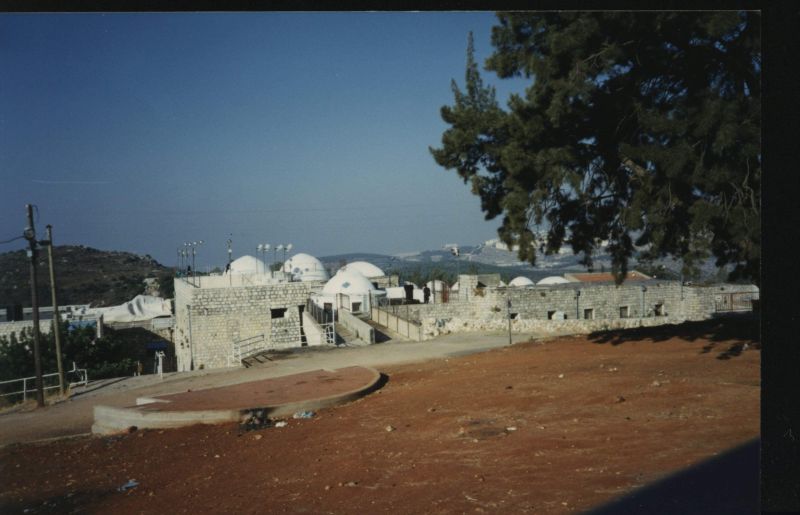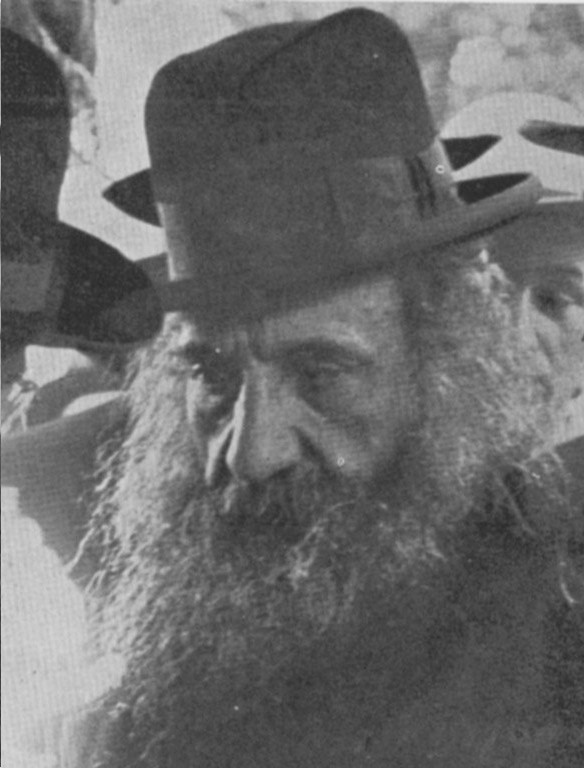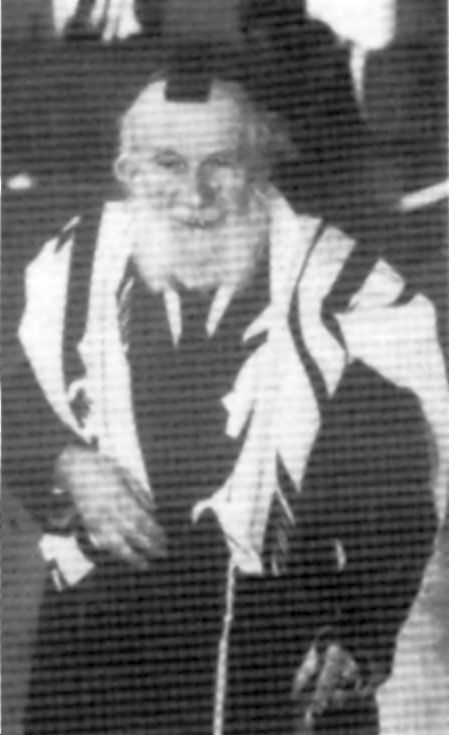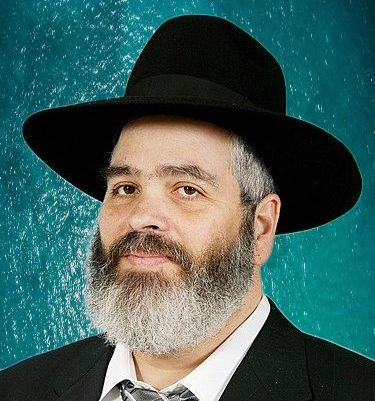  |
|
| ||||||
The next scheduled issue is for parshas Kedoshim. This Google Custom Search looks only in this website. The Knesset Passed the Meron Law
The Knesset plenum approved this past Monday the first reading of a bill organizing the Meron-Bar Yochai-Lag BaOmer festivities. The bill was formulated by the Office of Yerushalayim and Jewish Tradition and was presented to the Knesset by the Minister of Yerushalayim and Jewish Tradition, Rabbi Meir Porush, the person responsible for the Rashbi events in Meron.
The purpose of this law is to assure that the festivities remain within the confines of the law, while protecting the safety of the celebrants but not damaging the long standing traditions of celebration at that site. 23 Knesset members approved the bill, without opponents or abstainers. It will now be transferred for discussion within the Committee for National Security.
Regarding the recommendations of those in charge of security and the investigating committee of the Meron tragedy, the pilgrimage to Mt. Meron will be conducted in numbers safeguarding the masses seeking to reach the site. The final sum of visitors will be determined according to the maximum capacity of the place, taking into account the new areas prepared for accommodating the public.
Similarly, ...
HaRav Efraim Sokolover, rav of Ra'anna and a disciple of the Sabba of Slobodke, was one of the eminent Torah leaders in Eretz Yisroel of the past generation. He was a gifted speaker who related to the days of wrath in Europe in a Shabbos Hagodol address:
We commemorate 'Shabbos Hagodol' to remind us of our illustrious past dating back thousands of years to the exodus from Egypt. At that time we beheld the greatness of Hashem Yisborach in its full glory and grandeur. What do feel now of that beautiful, exceptional past, and what does Shabbos Hagodol say to us?
That selfsame Shabbos Hagodol continues on, generation after generation. It is written in Mechilta that Hashem wanted to redeem the Jews from Egypt to take them unto Him as a chosen, unique nation — and this very connection persists generation after generation as a mighty unbreakable bond which even the fiercest wind cannot shake and rend asunder. It was meant to entrench within us the awareness of 'with your bloods shall you live,' and that a Jew should give his all for his soul, for the blood of Pesach and the blood of circumcision.
This important essay was originally published before Pesach 1995 — Nisan 5755.
"And this is what has stood [firm] for us" (Haggadah Shel Pesach)
What is it that has stood by us, enabling us to survive all this time?
The answer is, "Because more than one power has arisen to destroy us..." Those who rise up against us preserve us. Our preservation is due to the fact that our enemies' persecution always causes us to return to Hashem, as Rashi explains at the beginning of parshas Nitzovim, that our suffering is what preserves us and enables us to remain standing.
The Initial Approach
The four sons mentioned in the Haggadah can be understood in an agaddic vein as referring to four consecutive generations.
The first is a Torah scholar who misdirects his wisdom and becomes a "man of cultured enlightenment." His son will be an evildoer who deserts Yiddishkeit. His son, the third generation, is ignorant and asks, "What is all this about?" Although he knows nothing about Judaism, he feels his deficiency and knows that there is something there to ask about. His son however, feels that it is of no concern to him at all.
Though to us it may appear that there is no hope whatsoever for such a person, this is incorrect. We are instructed, "You provide him with a beginning!" Go over to him and speak to him gently as the holy tannaim did (see Bava Metzia 85). They went looking for the children of ignoramuses and the offspring of Torah scholars who had left Torah, in order to bring them back to Hashem.
An excerpt from Hegyonei Mussar, edited by the author's son, Rav Avrohom Moshe Bruk. It was first published on Pesach 1995.
Bnei Yisroel were greatly respected by the Egyptians when they first descended to Egypt, at the time that Yosef was Pharaoh's viceroy. How did their status change so remarkably? How did they lose their prominent status to become a people of slaves engaging in arduous, menial labor?
"[Pharaoh] said to his people: `Behold, the nation of Bnei Yisroel are more numerous and mightier than we. Let us deal wisely with them. . . and they will go up from the land. . . They [the Egyptians] appointed taskmasters over them to afflict them. . . and they [bnei Yisroel] built treasure cities for Pharaoh. . . and they embittered their lives with hard work . . .. (Shemos 1:9-13).
The Seforno explains that the Egyptians wanted to deal "wisely" with them "by indirectly confronting them." By doing so bnei Yisroel would leave Egypt "by themselves, without our forcibly exiling them while lacking a clear reason, which would disgrace us before our enemies." By setting taskmasters to afflict the Jews, "they will agree to leave for another land." The treasure cities were then built by Bnei Yisroel, "who agreed to build them as a way of paying the tax. When the Egyptians saw them disgracing themselves to such a lowly level, they then enslaved them." The lives of the Jews were embittered with hard labor, "while they continued to sin in beliefs and deeds. . . and in this way their oppressors afflicted them."
The Seforno, our venerable commentator of Chumash, has revealed to us a remarkable secret! ...
It was erev Shabbos kodesh. Jews from all corners of the city are hastening to fulfill Hashem's command to prepare their Shabbos needs. The aromas of the baked goods and cooked delicacies fill the air. The Jewish streets, which bustle with activity, are like hives where the bees are waiting to savor the honeycomb — the sacred Shabbos. The voices of the vegetable merchants, urging people to purchase their wares, mingle with the noise of the busy street.
Shabbos kodesh...Shabbos kodesh is the message conveyed by the song which all are humming and is the thrust of all of the movement in the Jewish street in the Russian city of Slutsk.
The joy which found an abode in every home of the city stopped short at the threshold of R' Benzion Nisan, the melamed. In this household, sorrow prevailed, for its deathly ill master, R' Benzion, had felt so ill that day that he summoned his sons. As his many children gathered around his bed, he asked them to take siddurim in hand. The veteran melamed was preparing to leave this world. With a serious expression, the children opened the siddurim, and their father taught them how to recite the mourner's Kaddish.
"Yisgadal Veyiskadash shemai Rabbah," began the father. "Now say after me, word for word."
After celebrating the amazing success in overcoming the Iranian terrorist attack, the time has come for a provisional summation. Let us then begin with the huge miracles that accompanied it, where — aside from one victim, a Bedouin girl who got hurt from shrapnel — there were no casualties whatsoever. No one denies that the impressive success surprised even the greatest experts who fully admit that the number of successful interceptions is way beyond any known statistics. That having been said, let us analyze the victory and break it down to its components.
Iran sent 185 drones, each of which takes some six hours to reach its destination. After they were detected, there was plenty of time to intercept them. Israel was not the only one to do so. The U.S., Britain, France and even Jordan joined the fray. It is no easy feat to shoot down such a small aircraft but the protective aerial systems have already learned how to deal with such craft and indeed, succeeded in shooting them down, which is not so surprising, taking into account the lack of the element of surprise in the attack.
Then there were thirty-six cruise missiles shot down, not a large number considering that these also take time to reach their destination and that the coalition countries also possess defense systems, so that their shooting down is not really surprising.
There remain 110 ballistic missiles which also take time to get here from Iran, but much less than the others. Contrary to the others, these missiles fly high in the atmosphere before landing. Some of these were destroyed up in the air, yet some of them did succeed in evading all defense systems and landing on the air base in Nevatim.
Rain and Kinneret Watch by Dei'ah Vedibur
Staff
Our weekly report of the rain and the level of the Kineret -
Winter, 5784.
* * *
Outstanding Articles From Our Archives
Opinion & Comment
Each Son Has Potential
In the Torah, the questions and answers of the four sons do not appear in the same order as they do in the Haggodoh. In response to the question of the rosho (Shemos 12:26), the posuk gives an answer that is suited to the chochom. The she'eino yodei'a lish'ol receives the answer that is given in the Haggodoh to the rosho, (Shemos 13:8), while the question of the chochom, (Devorim 6:20) gets an answer that is suited for the tam.
The following is a possible explanation. The mitzvoh of recounting the story of yetzias Mitzrayim has to take a different form for each of the four types of sons, in response to the way each of them phrases his question. However, the Torah doesn't present the responses according to the questions, because even if a child is endowed with the gifts necessary to become a chochom, it is not certain that he will follow this path all his life. He must battle his yetzer hora and who can guarantee that he will be victorious?
And on the other hand, though a child may be born with tendencies that can lead him to become a rosho R'l, one must never give up hope. He is still obligated to serve Hashem and if he merits it, he can yet become a tam or even a chochom.
According to this, we understand the relevance of the phrase that precedes the discussion of the Four Sons in the Haggodoh" "Blessed is [He] who gave Torah to His people Yisroel. The Torah speaks about four sons . . . " The Torah does not only address itself to the wise son but to the wicked son as well.
Opinion & Comment
by Mordecai Plaut
A Jewish family is not just a convenient social structure that can be altered or discarded. Rather it is an essential part of life itself as envisioned by the Torah. Nothing makes this more clear than the yom tov of Pesach.
The family gathering on the night of Pesach that we call the Seder is an echo of the "bayis" that was formed in the time of the Beis Hamikdosh in order to eat the Korbon Pesach, together with the matzoh and the morror. We come together each year in our own homes throughout the world in the hope and with the prayer that we will once again soon come together as in days of old to actually bring and eat a Korbon Pesach each year.
The bayis that was assembled for eating the Korbon Pesach had to be composed of only those who were fully committed to the Heavenly task of the Jewish people: kol ben neichor lo yochal bo - anyone whose deeds are alienated from his Heavenly Father may not partake (Pesochim 96a and Zevochim 22b). Even those who are full members of the household (eved ish) may not participate unless they have a bris milah indicating that they are a part of the larger effort of the Jewish people in avodas Hashem. The head of the household himself is also not allowed to eat the Korbon Pesach unless he has ensured that all those who are associated with him are enlisted.
IN-DEPTH FEATURES
By Rabbi H. Helma
Training Oneself and Training Others
His Written Legacy
HaRav Wolbe's seforim became basic works for every aspiring ben Torah. One of the visitors to the shivah told the family that although he hadn't known the Mashgiach he wouldn't have been able to make his way through life without the help of Alei Shor. He said that at the huge levaya on Chol Hamoed Pesach he asked a number of people how they were so well-acquainted with the Mashgiach that they felt they should accompany him. Most of them replied that they only knew him through his seforim, which had made a strong impression on them.
HaRav Dovid Cohen, rosh yeshivas Chevron, said that many bochurim told him that Alei Shor transformed them and showed them how to approach avodas Hashem.
I Didn't Erase a Single Word
HaRav Wolbe's son R' Avrohom related that he once asked his father how he'd been able to write entire books using a typewriter (before the age of computerized word processing), with all the bother of erasing some sections and repositioning others. His father replied frankly, "I never erased a single word that I wrote in my books."
He once remarked to a grandson, "I want to tell you that the second section of Ho'odom Bi'yekor, which I have just been studying, contains all the fundamentals of mussar and it really ought to be studied in seder mussar. I can't say that to youngsters but I can tell it to you. I read it closely and I discovered that literally every one of the basic ideas of the Torah of the Mashgiach Reb Yeruchom appears there."
When his grandson asked how he'd been able to set everything down in writing he replied, "These are the Mashgiach's fundamental teachings that built the character and many worlds of greatness."
Mussar Study: the Elixir of Life
(1)He would prepare for whatever he had to do by taking out a mussar work and spending some time studying it. Only then would he announce that he was ready for the matter at hand.
Mussar Seder on a Street Bench
|
||||||




.jpg)






